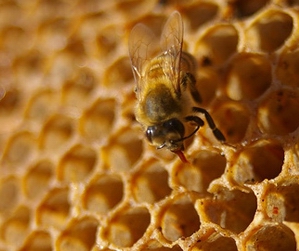 in the Royal Society Journal found that bees have the capacity to significantly contribute to food security.
in the Royal Society Journal found that bees have the capacity to significantly contribute to food security.The study states that the pollination process increases crop shelf life, quality and yield - which can help to reduce the almost 50 percent of crops that are wasted between harvest and the supermarket, ABC Rural reports.
Queensland based professor of agriculture ecology, Helen Wallace says that pollination is incredibly important to the future of Australian agriculture.
"One thing we don't tend to do very much in Australian agriculture is we don't manage bees very well," said Wallace.
"I think we've got a long way to go, we're doing a big catch-up. I think we're starting to realise the importance of it, but again, I don't think there's been a lot of work done."
Australian beekeepers have been faced with numerous hurdles over the fast few years including the threat of varroa mite which has the potential to destroy entire bee colonies.
In order to protect the nation’s bee colonies, the federal government has co-developed and launched the Pollination R&D Plan, as well as the National Bee Pest Surveillance Program, both of which are designed to prevent pests such as varroa mite from entering the country.





